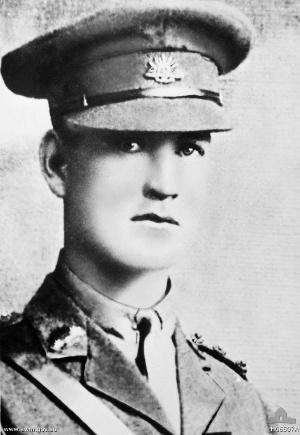Night of 21 Mar 1917, on way from Philadelphia to Rotterdam carrying oil, unarmed American SS Healdton, owned by Standard Oil, was torpedoed by German U-Boat off the Dutch coast. Of 41 crew, 22 survived rescued by Dutch torpedo-boat & trawler, after exposure to freezing weather.
Sunday, 27 March 2022
Marseille to Alexandria carrying horse fodder, British SS Minneapolis was torpedoed by U-35, 195 miles from Malta. 167 rescued, 12 died.
Montagne Bridge, France,
HS Tabora, a German hospital ship
German Army, the decision was taken at the Doullens Conference to appoint General Ferdinand Foch
24 Mar 1944, on way from Imphal to Lalaghat, Maj Gen Orde Wingate, DSO & Two Bars, died, aged 41 in an overloaded USAAF B-25 bomber that crashed.
24 Mar 1944, on way from Imphal to Lalaghat, Maj Gen Orde Wingate, DSO & Two Bars, died, aged 41 in an overloaded USAAF B-25 bomber that crashed. Famous for the creation of Chindit deep-penetration missions in Japanese-held territory during the Burma Campaign.
24 Mar 1916, while on way from Folkestone to Dieppe, SS Sussex was torpedoed by UB-29.
24 Mar 1916, while on way from Folkestone to Dieppe, SS Sussex was torpedoed by UB-29. 378, including 75 Americans on board. 50+ died, no Americans. Led to US threat to cut diplomatic ties. Germans replied with a ‘Sussex pledge’ saying that civilian vessels would not be targeted.
Lt Alan McLeod, Canadian pilot in RFC & RAF,
27 Mar 1918, 2nd Lt Alan McLeod, Canadian pilot in RFC & RAF, displayed outstanding bravery & gallantry when his Armstrong Whitworth FK8 was attacked by 8 German planes. Wounded x 5 but saved his observer. Awarded Victoria Cross. Died, aged 19, of Spanish flu on 6 Nov 1918.
Cpt Percy Cherry, Australian Imperial Force
Sunday, 23 January 2022
Thursday, 20 January 2022
Brigham Young Born in Vermont in 1801
Brigham Young Born in Vermont in 1801 to a Protestant family, Brigham Young, carpenter, painter, and glazier, joined the Mormons in Ohio in 1832. He took charge of the great migration west from Illinois in 1846, arriving in Salt Lake City in 1847. In 1849 he established the territory of Deseret, which encompassed present-day Utah. “Deseret” means “Honeybee” in the Book of Mormon and symbolizes industry. Young’s vision and organizational skills helped the settlers turn the desert into fruitful farmland. During his long life, he had several disputes with the federal government, whose authority he both resisted and recognized. Despite being removed from political office in 1857, Young was head of the Mormon church until his death in 1877.
Bishan Bedi and EAS Prasanna all over the VCA Cricket ground.
Reading Room and Reference Library at the Central Lending Library, Birmingham.
The Reading Room and Reference Library at the Central Lending Library, Birmingham. This grand building was demolished in 1974
Ali and Frazier taken in 2003.
Ali and Frazier took in 2003. Three decades earlier these men were champions of the world but age had taken its toll. A remarkable portrait by Walter Iooss Jr.
America’s Back Yard
Muera Nixon! Death to Nixon!
A barricade blocked the road. The car rocked
wildly as the chanting mob tried to overturn it. Rocks and iron bars thudded
against its roof and shattered its windows. Inside the car, Richard Nixon Vice
President of the United States was in great danger.
It was May 13, 1958, in Caracas, the capital of
Venezuela. Nixon was visiting the city as part of a goodwill tour of Latin
America. But he found only hatred on the streets of Caracas. Nixon's life was
saved when a truck forced its way through the barricade and his car was able to
accelerate away. When news of the attack reached the United States the American
people were shocked and angry. But it made them realize how much some Latin
Americans hated and resented their country.
Latin America is the name given to the mainly
Spanish-speaking countries which lie to the south of the United States. Ever
since the early 19th century, the United States has taken a special interest in
what happens in these countries. They are its closest neighbors and so it is
important to the safety of the United States to make sure that no foreign
enemies gain influence in them.
In the past, this has often meant that the
rulers of these Latin American countries have been little more than American
puppets. Their agriculture and industry have frequently been
American-controlled too. A classic example was Cuba. Up to the I950’s its
railroads, banks, electricity industry and many of its biggest farms were all
American-owned.
In 1933 President Franklin Roosevelt promised
that the United States would respect the right of Latin American countries to
control their own affairs. He called this the "good neighbor" policy.
I would dedicate this nation to the policy of the good neighbor, said
"The neighbor who respects the rights of others."
Roosevelt ordered to me the American soldiers
and officials who had been running the affairs of Latin American countries at
one time or another for much of the past 30 years. Nicaragua, for example, had
been occupied by American troops from 1912 to 1933. He also gave up the United
States' claim to interfere ill Panama and Cuba whenever it wanted.
But many Latin Americans were not convinced by
Roosevelt's talk about being a good neighbor. True the American troops had gone
home. But the rulers who took over when the soldiers left the Somoza family who
held power in Nicaragua from 1937 to 1979, for example usually did what the
Americans expected of' them.
The Second World War brought better times for Latin America. All the raw materials that it could produce- copper, tin, oil, and countless others were used by the wartime factories of the United States. The result was more money and more jobs -, but also even more American control.













